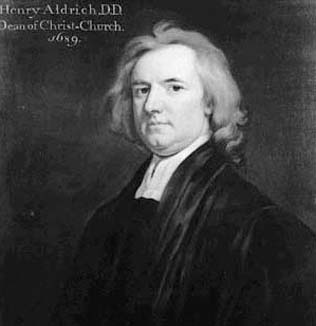

تاريخ الرياضيات

الاعداد و نظريتها

تاريخ التحليل

تار يخ الجبر

الهندسة و التبلوجي


الرياضيات في الحضارات المختلفة

العربية

اليونانية

البابلية

الصينية

المايا

المصرية

الهندية


الرياضيات المتقطعة

المنطق

اسس الرياضيات

فلسفة الرياضيات

مواضيع عامة في المنطق


الجبر

الجبر الخطي

الجبر المجرد

الجبر البولياني

مواضيع عامة في الجبر

الضبابية

نظرية المجموعات

نظرية الزمر

نظرية الحلقات والحقول

نظرية الاعداد

نظرية الفئات

حساب المتجهات

المتتاليات-المتسلسلات

المصفوفات و نظريتها

المثلثات


الهندسة

الهندسة المستوية

الهندسة غير المستوية

مواضيع عامة في الهندسة

التفاضل و التكامل


المعادلات التفاضلية و التكاملية

معادلات تفاضلية

معادلات تكاملية

مواضيع عامة في المعادلات


التحليل

التحليل العددي

التحليل العقدي

التحليل الدالي

مواضيع عامة في التحليل

التحليل الحقيقي

التبلوجيا

نظرية الالعاب

الاحتمالات و الاحصاء

نظرية التحكم

بحوث العمليات

نظرية الكم

الشفرات

الرياضيات التطبيقية

نظريات ومبرهنات


علماء الرياضيات

500AD

500-1499

1000to1499

1500to1599

1600to1649

1650to1699

1700to1749

1750to1779

1780to1799

1800to1819

1820to1829

1830to1839

1840to1849

1850to1859

1860to1864

1865to1869

1870to1874

1875to1879

1880to1884

1885to1889

1890to1894

1895to1899

1900to1904

1905to1909

1910to1914

1915to1919

1920to1924

1925to1929

1930to1939

1940to the present

علماء الرياضيات

الرياضيات في العلوم الاخرى

بحوث و اطاريح جامعية

هل تعلم

طرائق التدريس

الرياضيات العامة

نظرية البيان
Henry Aldrich
المؤلف:
W G Hiscock
المصدر:
Henry Aldrich of Christ Church
الجزء والصفحة:
...
21-1-2016
1586
Born: 15 January 1648 in Westminster, London, England
Died: 14 December 1710 in London, England

Henry Aldrich's parents were Judith Francis and Captain Henry Aldrich. Captain Aldrich served the Berkeley family for many years, in particular he served John Berkeley who became commissioner of the navy. Henry was born in Westminster, an inner borough of London, lying on the north bank of the River Thames. He was the eldest of his parents sons. He attended school in Westminster and was awarded a scholarship in 1658.
On 19 July 1662 Aldrich entered Christ Church, Oxford, see [2]. He was awarded his M.A. in 1666 and his M.A. in the following year, then became a tutor at Christ Church. He had wide interests including mathematics, music, and architecture. He was well known as a humorist and Suttle [3] describes him as:-
... a punner of the first value.
In 1674 he published Elementa geometricae which led to him being described by his Christ Church colleagues as [3]:-
... a great mathematician of our house.
He was interested in ecclesiastical affairs and on 4 February 1682 he was appointed as a canon at Christ Church. He was awarded the divinity degrees of B.D. and D.D. a couple of weeks later. The Oxford Philosophical Society was founded in October 1683, and Aldrich was a founder member giving a lecture at the first meeting of the Society. He sang in the Christ Church Cathedral choir and organised weekly music meetings associated with the choir but covered a much wider range of musical activities and styles [1]:-
The gatherings were remembered for their conviviality; Aldrich was a renowned drinker and pipe smoker. He was 'a highly competent composer' ...
Although Aldrich was a natural choice to take over as Dean of Christ Church when the position fell vacant in 1686, the king appointed a Roman Catholic to the position for religious reasons. However after the revolution of 1688 such things changed dramatically and Aldrich was appointed dean in April 1689.
In 1691 he published Artis logicae compendium a treatise on logic which was to be the main text on the topic for 150 years in England. Even when Richard Whately published Elements of logic in 1826 it still took Aldrich's work as his starting point, but then this much more modern text took over the role which Artis logicae compendium had held for so long; see [4] for further details.
For three years, from 4 October 1692, Aldrich was vice-chancellor of Oxford University. He composed music to be used in university ceremonies and also experimented with using movable type to print music. We mentioned above his interest in architecture and we should mention that he supervised the repair of St Mary's Church, Oxford, in 1675 and 1676. Handley writes [1]:-
He was probably the original architect of All Saints' Church, Oxford, constructed between 1701 and 1710, and was certainly the designer of the Peckwater quadrangle in Christ Church, begun in 1706 but not finished until 1714, after Aldrich's death.
He took ill in November 1707 but recovered well enough to carry on his duties. However, when his health deteriorated in 1710 he went to London to seek treatment and it was while he was in London that he died. He was buried in Christ Church on 22 December.
- Biography by Stuart Handley, in Dictionary of National Biography (Oxford, 2004).
Books:
- W G Hiscock, Henry Aldrich of Christ Church, 1648-1710 (Oxford, 1960).
Articles:
- E F A Suttle, Henry Aldrich, dean of Christ Church, Oxoniensia 5 (1940), 115-139.
- J van Evra, Richard Whately and the rise of modern logic, Hist. Philos. Logic 5 (1) (1984), 1-18.
 الاكثر قراءة في 1600to1649
الاكثر قراءة في 1600to1649
 اخر الاخبار
اخر الاخبار
اخبار العتبة العباسية المقدسة

الآخبار الصحية















 قسم الشؤون الفكرية يصدر كتاباً يوثق تاريخ السدانة في العتبة العباسية المقدسة
قسم الشؤون الفكرية يصدر كتاباً يوثق تاريخ السدانة في العتبة العباسية المقدسة "المهمة".. إصدار قصصي يوثّق القصص الفائزة في مسابقة فتوى الدفاع المقدسة للقصة القصيرة
"المهمة".. إصدار قصصي يوثّق القصص الفائزة في مسابقة فتوى الدفاع المقدسة للقصة القصيرة (نوافذ).. إصدار أدبي يوثق القصص الفائزة في مسابقة الإمام العسكري (عليه السلام)
(نوافذ).. إصدار أدبي يوثق القصص الفائزة في مسابقة الإمام العسكري (عليه السلام)


















